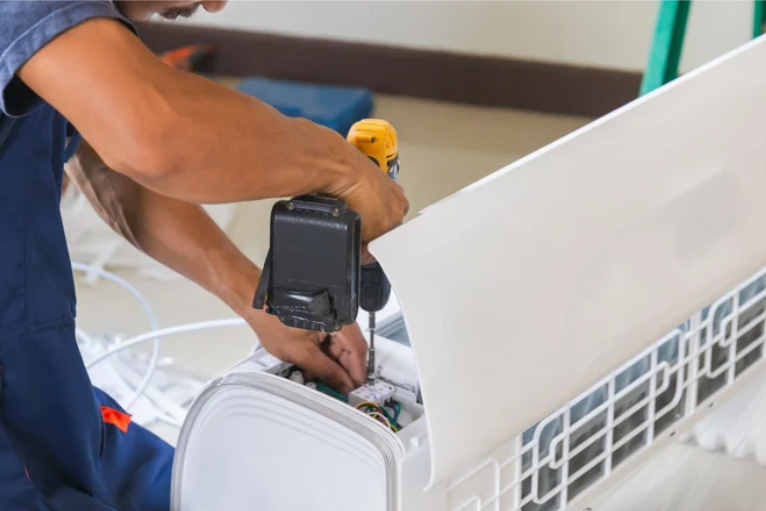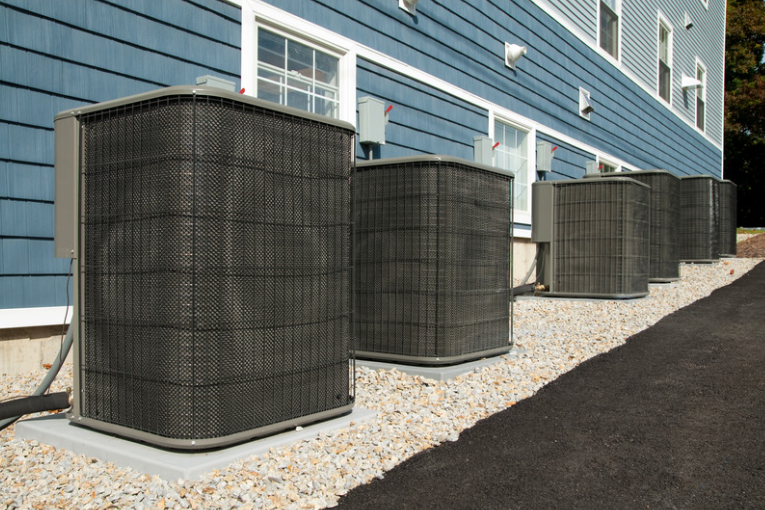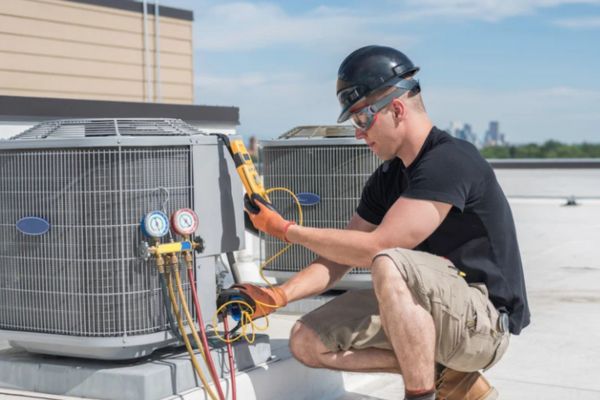As the seasons change and temperatures fluctuate, homeowners often find themselves switching between heating and cooling to stay comfortable year-round. That’s why it’s so important to ensure both systems are running at their best. But what happens when your AC unit just isn’t cutting it anymore? Sometimes, repairs aren’t enough, and replacing your AC unit becomes a necessity—not just for comfort, but for efficiency and long-term savings.
Understanding what drives HVAC replacement costs, from system size to energy efficiency ratings, can help you make smarter, more informed decisions. While replacement might seem like a big investment upfront, it often saves you money in the long run by lowering energy bills, avoiding constant repairs, and increasing the overall value of your home.
We’re here to help you navigate these decisions and budget for them confidently. With the right information, replacing your AC doesn’t have to be a daunting task—it can be a step toward a more comfortable, energy-efficient home. Check out our website for tips and insights to guide you every step of the way!

Average Cost Overview
As of 2024, replacing an HVAC system costs an average of $7,500. Many factors can influence the total price, but most people receive quotes ranging from $5,000 to $12,500. These figures consider both the cost of the unit itself and the expenses associated with labor.
Cost By System Type
The type of HVAC system you choose plays a significant role in determining the overall cost. Here’s a breakdown:
- Central Air Conditioning System: $3,900–$7,900
- Ductless Mini-Split Systems: $2,000–$14,500
- Air-Source Heat Pumps: $4,200–$8,000
- Geothermal Systems: $18,000–$30,000
- Window AC Units: $150–$550
Homeowners should keep the following expenses in mind when preparing to replace an HVAC:
- Installation Labor: $1,500+
- Ductwork Replacement: $2,100–$4,000.
- Permits and Inspections: $250–$400
Key Factors Influencing HVAC Replacement Costs
Several factors can cause the price of HVAC replacement costs to increase:
- Type of System: Not all systems are priced the same. For example, a central air system might cost between $3,900 and $7,900, whereas ductless mini-splits can cost anywhere from $2,000 to $14,500.
- Size of the Unit: The size of your home and the layout of your space may determine the capacity of the HVAC unit you need to purchase. For instance, larger homes require bigger units with a greater power capacity.
- Energy Efficiency: High-efficiency systems with impressive SEER ratings tend to cost more upfront, but they can save you money on energy bills in the long run.
- Ductwork Condition: Replacing or upgrading ductwork can increase the amount you pay for your HVAC replacement. Depending on the complexity of the installation process, your total expenses may reach upwards.
- Labor Costs: These often vary based on geographic location and the complexity of the installation, but the average labor cost is approximately $1,500.
- Local Climate: Your climate will affect the type of system you’ll need. For example, homes located in colder environments may need more powerful heating systems. Meanwhile, a residence situated in a warmer area would likely require more substantial cooling capabilities instead.
- Additional Features: Extra features–like HEPA filters, smart thermostats, and zoning capabilities–can increase the overall cost. However, they tend to enhance overall comfort levels and system efficiency rates, so the price point may be worth it for those who value these features.
Replacing your HVAC system in 2024 can be a significant upfront investment, especially when your costs can reach tens of thousands of dollars. However, you can plan your budget more accurately when you understand which factors will affect your total price the most—such as system type, unit size, energy efficiency, and local labor rates.

Repair or Replace? How to Decide on Your HVAC System
When you come face-to-face with HVAC-related issues, it’s often more cost-effective to repair the unit you already have than to purchase and replace a new one.
But how can you tell whether or not your HVAC system has gone beyond repair? Here are three circumstances in which a repair is likely the better option:
- Concerns Regarding Pilot Lights: If your pilot light won’t stay on, this often indicates a minor fix.
- Leaks: HVAC units with leaks—particularly ones leaking refrigerant or water—can usually be repaired by an experienced technician.
- Problems With the Fan: If your unit’s fan won’t stop running or stays stuck in one mode—such as only blowing hot or cold air but not both—you can contact an HVAC repair company for assistance.
Additionally, if your HVAC system is over ten years old, a replacement may be soon. Also, if your HVAC system exhibits major issues—such as a running air conditioner that does not cool the air or a furnace that works but doesn’t make the room any warmer—it may be time to consider replacing your HVAC system.
DIY HVAC Maintenance vs Professional HVAC Replacement Services
Consider tackling HVAC maintenance tasks independently after considering the average cost of replacing an HVAC. And while some HVAC-related adjustments are easy enough to complete, the installation process is best left to the professionals.
Here’s why you should hire an HVAC replacement company in your area:
- Complex Systems: HVAC installation often involves electrical systems, plumbing, and gas lines—areas where DIY work can be dangerous and illegal without proper licensing.
- Efficiency Risks: If you fail to install your HVAC properly, you might end up with an inefficient system that costs far more in monthly energy bills than you intended.
Takeaway
Finding the right professional is so important when it’s time for HVAC repairs or a new installation. The process doesn’t have to be overwhelming—just look for licensed, insured technicians with experience in your specific type of system. Don’t hesitate to ask for references or check online reviews to make sure you’re hiring someone reputable and reliable.
Knowing when to repair versus replace your system and understanding the limits of DIY work can save you time, money, and stress while keeping your HVAC system in great shape. That’s where Home Star comes in! We’re here to connect you with trusted HVAC professionals who can help with everything from installation to repairs and maintenance. Ready to take the next step? Visit our website for more tips and resources to ensure your home stays comfortable all year long.



